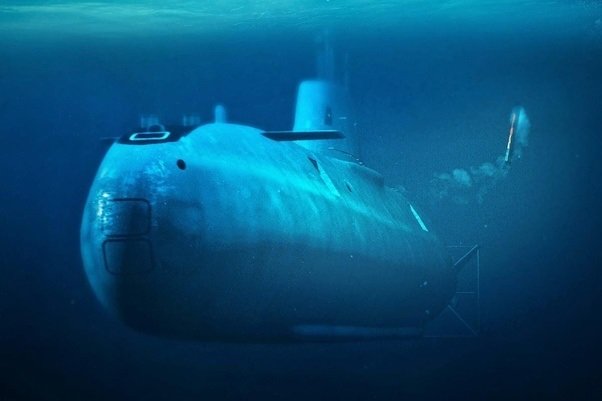The maritime industry is a crucial part of the global economy, responsible for transporting over 90% of the world’s goods across our oceans.
This vast network includes everything from container ships, oil tankers and barges to cruise liners and oil rigs. Despite their differences, these vessels all share a common need for stringent safety measures due to the unique challenges and risks associated with working, living and travelling at sea.
Proper maintenance of these vessels is essential for ensuring their integrity and functionality. Regular inspections, repairs and upkeep help prevent accidents and mechanical failures, protecting the lives of seafarers and passengers.
Moreover, many economies rely heavily on the continuous flow of exports and imports carried by these ocean-going vessels. Any disruption could lead to a significant financial crisis and shortages of critical resources, including food, medicine and other vital supplies. It is therefore crucial to minimise any interruptions that threaten operational continuity. As a result, underwater marine services play a significant role in modern shipping.
So, what are underwater marine services?
What Are Underwater Marine Services?
Underwater marine services encompass a range of maritime-centric solutions provided at or below the water’s surface. These services are essential for maintaining, repairing and inspecting ships and other marine structures, ensuring their efficiency, safety and compliance with international regulations.
It is quickly becoming industry standard for vessel owners to enlist specialist underwater marine services companies to perform these duties, due to their expertise in handling the potential dangers of ocean environments
Underwater marine services often include:
- Hull Cleaning and Propeller Polishing – Involves the removal of biofouling and other debris from the hull and propellers, which improves a ship’s performance by reducing drag and increasing speed and fuel efficiency. This contributes to significant cost savings for shipping companies.
- Underwater Welding and Cutting – Performs structural repairs on submerged parts of ships and offshore structures, allowing for effective maintenance and repairs without the need to dry-dock the vessel.
- Underwater Inspection and Survey – Helps to identify and prevent potential problems with a ship’s underwater components early on. This can reduce the risk of accidents and equipment failure, ensuring ongoing vessel integrity and reliability.
- Installation and Upkeep of Navigation Systems – Involves correctly installing and maintaining essential technology to ensure safe, efficient voyages.
Advantages of Underwater Marine Services
Underwater services have revolutionised the way vessels are cared for, with far-reaching impacts on various aspects of the maritime sector.
Traditionally, maintaining and repairing ships required them to be taken out of service and dry-docked. In a sector where margins are tight and operational costs are high, every minute a ship spends out of commission can lead to significant supply chain disruptions and financial burdens for shipping companies.
With underwater services, essential maintenance tasks can be carried out while ships remain in the water. This means fewer schedule interruptions and a more cost-effective and timely process for shipowners.
As underwater marine services prove their effectiveness, they are becoming the industry standard for vessel maintenance, reshaping maintenance practices across the maritime sector.
Additional benefits of underwater marine services include:
Environmental Impact: Regular underwater maintenance, particularly through biofouling management, helps to minimise the spread of invasive species. Biofouling, the accumulation of microorganisms, plants or algae on the hull of a ship, can transport invasive species across different marine environments, disrupting local ecosystems. Effective underwater hull cleaning prevents this spread, protecting biodiversity and maintaining the ecological balance. Additionally, underwater maintenance reduces the risk of oil spills and other environmental hazards by ensuring that the vessel’s structure and systems are in good condition. Routine inspections and repairs can detect and address potential issues early on, preventing leaks and other failures that could lead to significant environmental damage.
Extending Lifespan: Regular underwater inspections and maintenance significantly extend the lifespan of a ship’s underwater components, such as the hull, propellers and rudder. By identifying and addressing issues early, these services prevent minor problems from escalating into major, costly repairs or replacements. Furthermore, well-maintained ships operate more smoothly, encounter fewer mechanical issues and require less frequent major repairs. This long-term operational efficiency results in cost savings and improved reliability for shipping companies.
Safety and Compliance: Proper maintenance, inspections and repairs are essential for ensuring the safety of seafarers and passengers onboard by reducing the risk of accidents at sea. Many countries enforce stringent regulations that require ships to undergo regular underwater inspections and maintenance. These regulations are designed to uphold the safety and structural integrity of vessels while protecting the marine environment. Compliance with these regulations is essential to avoid penalties and ensure the smooth operation of shipping activities. Underwater services help ships meet these regulatory standards, promoting safer and more reliable maritime operations.
Final Thoughts
Specialist underwater marine services have become indispensable in the ship repair and maintenance service industry. They play a pivotal role in ensuring the safety, security and efficiency of vessels, thereby enhancing the lives of seafarers and passengers.
Their contributions are vital for promoting the long-term success and resilience of the shipping industry. From reducing maintenance costs and minimising downtime to enhancing safety, performance and environmental sustainability, their contributions span various domains.
As technology continues to advance, the significance of underwater services in the maritime sector will only grow. They are poised to play an increasingly influential role in ensuring the smooth sailing of global trade and the continued success of the modern shipping industry.











